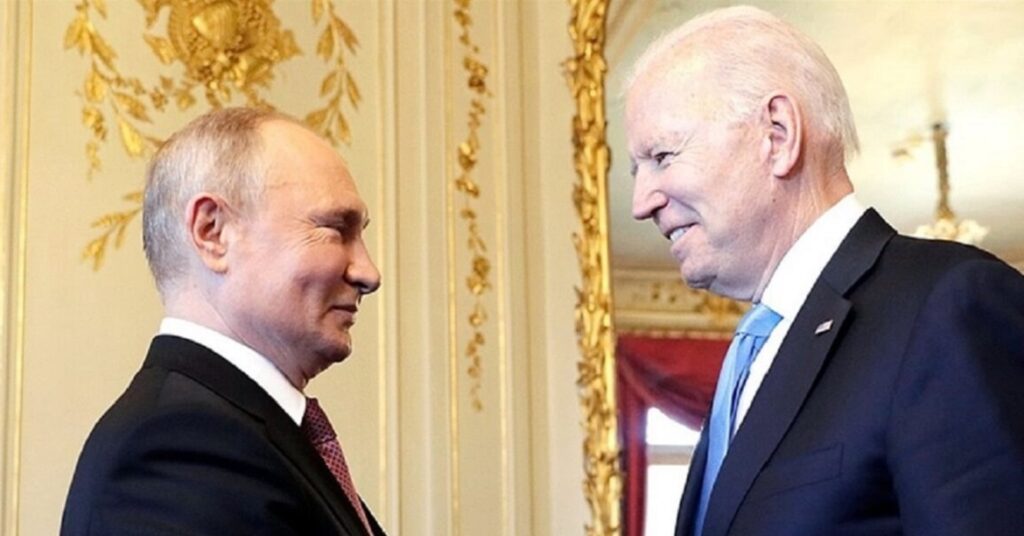By Naveed Ul Hasan
In the modern world, democracy and autocracy represent two starkly different visions for governance, freedom, and human rights.

While the 20th century saw the triumph of liberal democracy over fascism and communism, the 21st century is witnessing a resurgence of authoritarianism across the globe. This ideological battle between democracy and autocracy is shaping international relations, domestic politics, and global security.
The struggle for dominance between these two systems is more than just a contest for political power; it is a fight over the future of governance, values, and society itself.
Autocratic regimes, characterized by centralized power, limited political pluralism, and the suppression of dissent, have been on the rise in recent years. Leaders like Vladimir Putin in Russia, Xi Jinping in China, and Recep Tayyip Erdoğan in Turkey have consolidated power through authoritarian practices, weakening democratic institutions and suppressing opposition. These leaders have embraced a model that blends strongman politics, nationalism, and state control of media and information. This approach has allowed them to maintain power, often with high levels of public support, despite clear restrictions on political freedoms.
China’s rise as a global superpower represents perhaps the clearest example of how autocratic governance can rival the democratic model. Under Xi Jinping, China has tightened its grip on power, with increasing control over civil society, media, and the economy. China’s success in delivering economic growth, technological advancements, and infrastructure development, despite its authoritarian system, has inspired other countries to question the Western liberal democratic model. China presents itself as a viable alternative to democracy, particularly for developing countries seeking rapid modernization without the messiness of democratic processes.
Similarly, Russia has become a key player in the autocratic resurgence. Under Putin’s leadership, Russia has employed tactics like disinformation campaigns, military interventions, and support for populist and authoritarian movements across Europe and beyond. Putin’s model of governance, which combines state-controlled media, electoral manipulation, and a crackdown on political opposition, has been exported to other aspiring autocrats.
The appeal of autocracy lies not only in the perceived stability it offers but also in the ability of autocrats to present themselves as defenders of national sovereignty and traditional values. In many countries, especially those with fragile democratic institutions or histories of colonialism, the promise of strong leadership and national pride can be deeply appealing.
Democracy, long considered the gold standard of governance, is facing profound challenges both from within and outside. Internal weaknesses like political polarization, economic inequality, and the rise of populism have eroded trust in democratic institutions in many countries. Democracies around the world are struggling to address these issues, which have left citizens disillusioned and vulnerable to anti-democratic forces.
In Western democracies, political polarization has reached dangerous levels. The United States, once the beacon of democracy, is deeply divided along partisan lines, with the rise of populist movements threatening the very fabric of its political system. The refusal to accept election results, the erosion of norms, and the increasing acceptance of undemocratic behavior have called into question the resilience of democratic governance in the country.
Europe, too, is grappling with the rise of right-wing populism, as seen in countries like Hungary and Poland, where leaders like Viktor Orbán and the Law and Justice Party have systematically undermined democratic institutions. By controlling the judiciary, restricting media freedoms, and attacking civil society, these leaders have blurred the line between democracy and autocracy. Their continued electoral success, despite—or because of—their authoritarian tendencies, suggests that democracy may not be immune to the lure of autocracy.
Economic inequality has also played a significant role in undermining faith in democracy. In many countries, the benefits of globalization and technological advancement have not been evenly distributed, leading to widespread discontent among those who feel left behind. This discontent has fueled the rise of populist movements, which often advocate for strongman leaders who promise to restore order, protect national interests, and reject liberal democratic norms in favor of a more centralized, controlled form of governance.
One of the most significant developments in recent years has been the global influence of autocratic regimes. Russia and China, in particular, have become key players in spreading authoritarian ideas and practices beyond their borders. Through economic aid, strategic alliances, and military support, these countries have forged ties with other nations, creating a growing axis of authoritarianism.
China’s Belt and Road Initiative (BRI) has been a central tool for expanding its influence. By investing billions of dollars in infrastructure projects across Asia, Africa, and Europe, China has not only gained access to key markets but also extended its political reach. Countries that are heavily reliant on Chinese investment are often less likely to criticize China’s human rights abuses or authoritarian governance model. In many cases, these countries adopt similar governance practices, leading to the weakening of democratic institutions and norms.
Russia, meanwhile, has used its military power and information warfare tactics to destabilize democratic nations and support authoritarian leaders. Its aggression on Ukraine, and military involvement in Syria and other regions, has helped solidify its image as a protector of autocratic regimes. Autocratic regimes have also been adept at using global institutions to their advantage. Both Russia and China wield considerable influence in organizations like the United Nations, where they often block efforts to hold authoritarian leaders accountable for human rights abuses. By exploiting the weaknesses of international institutions, autocrats have been able to maintain their grip on power while evading global scrutiny.
Despite the growing appeal of autocracy, democracy remains resilient in many parts of the world. In countries like Taiwan, South Korea, and several Latin American nations, democratic values continue to thrive even in the face of external pressures. These countries have shown that it is possible to build strong democratic institutions that can withstand the challenges posed by economic inequality, political polarization, and foreign influence.
The future of the battle between democracy and autocracy will depend on how effectively democracies can address their internal weaknesses. Restoring faith in democratic institutions requires addressing issues like inequality, corruption, and the influence of money in politics. It also means reinvigorating civil society, protecting media freedoms, and ensuring that democratic norms are respected.
On a global scale, democracies must also find ways to counter the influence of autocratic regimes. This includes strengthening international alliances, promoting democratic values abroad, and pushing back against the spread of authoritarian practices. Initiatives like the Biden administration’s Summit for Democracy are steps in the right direction, as they aim to unite democratic nations in defense of their shared values.
The battle between democracy and autocracy is shaping the political landscape of the 21st century. While autocratic regimes have gained ground in recent years, the resilience of democracy should not be underestimated. The future of global governance will depend on the ability of democracies to address their internal challenges, resist the appeal of authoritarianism, and promote democratic values on the world stage. As this ideological contest continues to unfold, the stakes for freedom, human rights, and governance could not be higher.
Author: Naveed-Ul-Hasan – PhD Scholar (International Relations). He is a Visiting lecturer at Karakoram International University. His research primarily investigates the strategic relations between Pakistan, China, India, and the USA. Additionally, his scholarly interests encompass a wide range of topics within South Asian studies, including extremism, radicalization, terrorism, the foreign policies of major global powers, and regional issues.
(The opinions expressed in this article are solely those of the author and do not necessarily reflect the views of World Geostrategic Insights).
Image Source: Kremlin.ru







